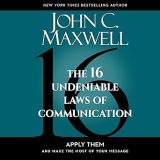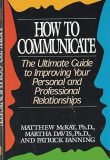Over the years, I have come to realize that the cornerstone of effective business development and professional success lies in mastering relationships. Whether you’re networking with peers, fostering client connections, or collaborating with teammates, the ability to build and maintain strong relationships can make all the difference. In this blog post, I will share insights and strategies that can empower you to nurture meaningful connections, ultimately leading to greater opportunities and achievements in your career.
Key Takeaways:
Effective Communication: Building strong relationships in business hinges on the ability to communicate clearly and empathetically, fostering trust and understanding.
Networking Skills: Mastering the art of networking is vital; it involves not just making connections but also nurturing them over time for mutual benefits.
Emotional Intelligence: Developing emotional intelligence allows professionals to navigate social complexities, enhancing collaboration and conflict resolution within teams.
1. Build genuine connections for lasting professional success.
2. Communication is imperative for effective relationship management.
3. Networking expands opportunities and fosters collaboration.
4. Trust and authenticity strengthen business relationships significantly.
5. Follow up and maintain connections for long-term growth.
6. Adaptability enhances relationships in diverse professional environments.
The Fundamental Role of Relationships in Business
While many factors contribute to the success of a business, none can be as pivotal as the relationships we cultivate. In my experience, the foundation of any thriving enterprise lies in its network of connections, both internal and external. Understanding the dynamics of these relationships is necessary, as it enables us to navigate the complex social landscape of business. When I talk about relationships, I often think of them as intricate webs that bind people together, fostering trust, collaboration, and innovation.
Understanding Relationship Dynamics
Relationships are not just about exchanging business cards or maintaining a LinkedIn presence; they are multi-faceted interactions built over time. Each relationship possesses its own dynamics, influenced by various factors such as communication styles, personalities, and mutual objectives. I have found that effectively managing these dynamics can enhance collaboration and lead to more fruitful partnerships.
This entails recognizing the importance of emotional intelligence. The ability to understand and respond to the feelings and motivations of others allows us to form deeper connections. When you invest time in understanding your counterparts, you pave the way for rapport that can lead to increased opportunities and greater success.
The Impact of Relationships on Business Growth
On a practical level, the relationships you build directly influence your business growth. Strong connections foster trust and credibility, which can lead to referrals, collaborations, and new client acquisition. Personally, I have witnessed how a single referral from a trusted contact can open doors to opportunities that would have otherwise remained closed. The ripple effect of positive relationships can significantly amplify the potential for growth.
Understanding how robust relationships can lead to a booming business allows me to prioritize networking and relationship-building in my strategies. The foundation of a successful brand is often built on a network of satisfied customers and engaged partners. I always encourage you to consider how your relationship-building efforts can translate into long-term business success.
Types of Professional Relationships
With a diverse range of professional relationships available, understanding their different types can enhance your networking and growth strategies. Below, I have outlined some key types of professional relationships that play a crucial role in business:
Type of Relationship | Description |
|---|---|
Colleague Relations | Where collaboration occurs among team members. |
Client Relations | Building trust and rapport with clients for business success. |
Vendor Relations | Cooperation and negotiation with suppliers. |
Networking Connections | Building a professional network for mutual growth. |
Mentor-Mentee Relations | Knowledge sharing and support through mentorship. |
After identifying the types of relationships, it becomes easier to strategize how to develop them effectively. Each type serves a different purpose but collectively contributes to a well-rounded professional development. I have learned that nurturing these relationships requires a focused and tailored approach, ensuring that you are meeting the needs of each connection.
Understanding the specific dynamics of these relationships can also help clarify your objectives and how best to engage with different parties. Here’s an overview of relationship-based strategies I recommend:
Foster mutual trust and respect.
Engage in regular communication.
Offer value where possible.
Be proactive in networking.
Seek feedback to improve the relationship.






